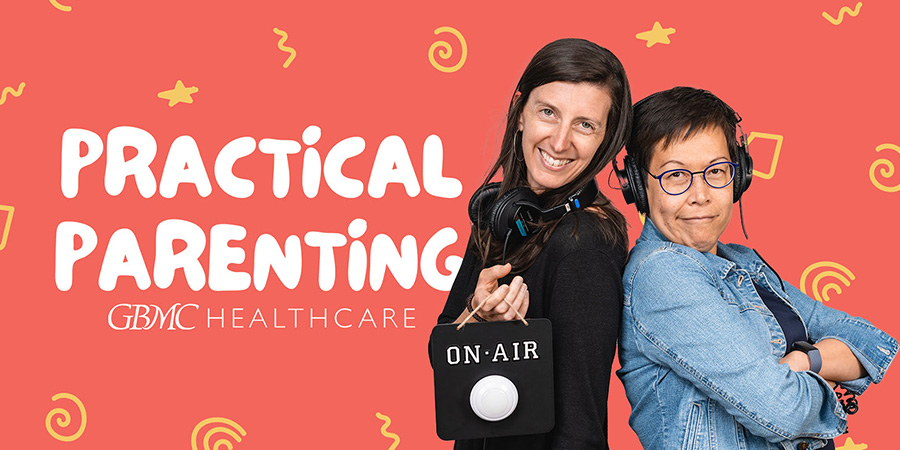Practical Parenting: The Gut-Brain Connection: What Your Stomach Is Telling Your Brain
May 30, 2025
The gut and brain are more connected than you might think. In fact, the former has earned the nickname "the second brain." Understanding the connection between your brain and gut microbiome can help make more informed decisions about nutrition, lifestyle, and mental wellbeing.
The gut contains the highest concentration of neural crest cells outside the brain and spinal cord, making it an essential player in our emotional and cognitive processes. One of the most critical pathways in this connection is the vagus nerve, which links the brain and the gut. This nerve plays an essential role in the two-way communication between the two organs.
You’ve probably experienced this connection yourself: think of the "butterflies" in your stomach when you’re nervous. This is your gut signaling to your brain, which then responds with heightened feelings of anxiety or unease.
But the story doesn’t end there. Your gut also produces most of the serotonin in your body—around 90-95%. Serotonin is a neurotransmitter that regulates mood, and low levels are associated with depression and anxiety. When the gut is healthy and balanced, it produces the serotonin our body needs to keep us calm, happy, and focused. J
ust like any other part of the body, the gut thrives on good nutrition. The foods we eat play a critical role in maintaining the delicate balance of our gut microbiome, which in turn, impacts our mental health. So, what foods should we prioritize for a healthy gut?
- Probiotic Foods: These foods contain live bacteria that are good for your gut. Examples include yogurt, kefir, kimchi, sauerkraut, and kombucha. These fermented foods help replenish the healthy bacteria in your gut, promoting better digestion and mood regulation.
- Prebiotic Foods: These foods are high in fiber and feed the beneficial bacteria in your gut. Examples include beans, lentils, bananas, garlic, onions, asparagus, and leafy greens. By feeding your good bacteria, you’re helping them grow and produce more of the helpful neurotransmitters like serotonin and GABA.
- Omega-3 Fatty Acids: Fatty fish like salmon, sardines, and mackerel are rich in omega-3 fatty acids, which have anti-inflammatory properties and help protect the brain from excessive inflammation. Omega-3s are crucial for mental clarity, mood regulation, and overall brain health.
- Polyphenol-Rich Foods: These are antioxidant-rich foods like berries, beets, eggplant, and nuts that help combat oxidative stress, protect your cells, and reduce inflammation. In addition to improving gut health, polyphenols protect the brain and promote its resilience.
Chronic stress wreaks havoc not only on our mental health but also on our gut microbiome. When we experience prolonged stress, cortisol levels remain elevated, which disrupts the gut’s ability to function properly. This results in an imbalanced microbiome, leading to mood swings, anxiety, and even depression.
Incorporating stress management techniques into your routine, such as deep breathing, exercise, and meditation, can help lower cortisol levels and improve gut health, ultimately supporting better brain function.
While we’re focused on nurturing our gut, it’s equally important to limit foods that disrupt its balance:
- Processed Foods: Ultra-processed foods, including frozen meals, packaged snacks, and fast food, are filled with unhealthy fats and preservatives that can damage the gut microbiome.
- Sugar: High sugar consumption leads to increased inflammation, which can affect brain function and mood regulation. Try to minimize your intake of refined sugars and opt for natural sweeteners like honey or fruit.
- Fried Foods: Foods fried in unhealthy fats, like trans fats, can increase inflammation and disrupt gut bacteria. Opt for healthier fats like those found in avocados and olive oil.
- Artificial Sweeteners: These can alter gut bacteria and interfere with the production of important neurotransmitters. Avoid consuming too many diet sodas or sugar-free snacks.
Taking care of your gut is an investment in your overall wellbeing, and by extension, your mental health. By prioritizing a balanced, nutrient-rich diet that supports gut health, you can enhance your mood, improve cognitive function, and foster emotional regulation. Whether you're looking to manage anxiety, depression, or just maintain a healthy mind, remember your gut plays a crucial role in your mental wellness.
Listen on ...




